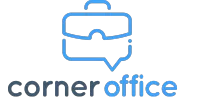Hire Power
Blogs from CornerOffice

Is your Talent Team Respected?
Unlocking Success: The Importance of a Well-Defined Talent Acquisition Process
Introduction
Talent acquisition stands as the cornerstone of any thriving business, the cornerstone upon which success pivots. Yet, within the realm of talent acquisition, lies a fundamental choice: reactive recruiting or proactive hiring? This decision delineates between merely filling positions and strategically building a workforce poised for excellence.
Significance of a Successful Strategy
A well-crafted talent acquisition strategy holds the power to sculpt the caliber of candidates entering an organization's ranks. The difference between mediocrity and brilliance often resides in the strategy's foundation. It's a realm where curiosity reigns supreme, where those willing to question, innovate, and take calculated risks unearth the gems amidst the talent pool.
Challenges in Talent Acquisition
Navigating the tumultuous waters of talent acquisition presents a myriad of challenges. From the scarcity of qualified candidates to the cutthroat competition among organizations vying for the same talent, the landscape is fraught with obstacles. Moreover, ensuring fairness, efficiency, and legality in the recruitment process adds yet another layer of complexity to the equation.
“Without adversity, there would be no growth, and without growth, there would be no lessons to be learned.” - Michelle D. Rosado
Key Components of Best-in-Class Talent Acquisition Process
To navigate these challenges successfully, organizations must employ a multifaceted approach. Key components of a best-in-class talent acquisition process include establishing a compelling employer brand, leveraging recruitment marketing strategies, implementing robust candidate screening and assessment procedures, utilizing applicant tracking systems (ATS), prioritizing the candidate experience, and embracing diversity and inclusion.
Essential Aspects of Effective Talent Acquisition
At the core of effective talent acquisition lies alignment with long-term organizational goals. It's not merely about filling vacancies but about strategically assembling a team that propels the organization toward its envisioned future. This necessitates a commitment to continuous assessment and improvement, ensuring that the talent acquisition process evolves in tandem with the organization's needs.
Talent Acquisition Strategy
A talent acquisition strategy embodies a tailored approach to identifying, evaluating, and hiring top-tier candidates, all in service of the organization's long-term objectives. Central to this strategy is the cultivation of a robust employer brand and the delivery of a positive candidate experience.
Differentiation from Recruitment
While recruitment may focus solely on filling immediate vacancies, talent acquisition adopts a more strategic outlook. By aligning recruitment efforts with the company's overarching vision, talent acquisition managers seek to cultivate a pipeline of talent poised to drive sustained organizational growth.
Tactics for Success
Success in talent acquisition hinges on a series of tactical maneuvers, from cultivating a compelling employer brand to casting a wide net for talent. Incentivizing employee referrals, hiring based on skills rather than degrees, and pursuing Great Place To Work Certification profile are among the tactics employed by organizations committed to excellence in talent acquisition.
Key Elements of a Successful Talent Acquisition Strategy:
Corporate Mindset and Bias
Central to a successful talent acquisition strategy is a corporate mindset aligned with the organization's goals. Moreover, identifying and mitigating biases ensures that hiring decisions are based on merit rather than preconceived notions.
Employer Branding
A compelling employer brand serves as a beacon, attracting top talent to the organization. The importance of cultivating a workplace culture that resonates with prospective employees. A strong employer brand not only attracts top talent but also fosters employee engagement and retention, creating a positive cycle of talent acquisition and organizational success.
Involvement of Stakeholders
By engaging stakeholders throughout the process, from identifying needs to evaluating candidates, organizations ensure alignment between hiring goals and business objectives. This collaboration fosters a sense of ownership and commitment, leading to better decision-making, improved candidate experiences, and ultimately, more successful hires.
Candidate Experience
Treating candidates with respect and integrity throughout the recruitment process is paramount. From transparent communication to holistic assessment, prioritizing the candidate experience lays the groundwork for lasting employer-employee relationships.
Conclusion
In conclusion, a well-defined talent acquisition process is not merely a necessity but a strategic imperative for organizations aspiring to greatness. From defining a robust strategy to executing tactical maneuvers, every aspect emphasizes the need to align recruitment efforts with long-term business goals. By prioritizing proactive approaches, cultivating compelling employer brands, and enhancing candidate experiences, organizations can navigate talent acquisition complexities effectively. Such efforts not only fill vacancies but also lay the foundation for sustained growth and excellence in today's dynamic business landscape.
About CornerOffice
At CornerOffice, with more than 45 years of firsthand experience, we know that executive search is more than just a job – it's an art. With an outstanding 91% retention rate, it can transform your company's trajectory. Our talent solutions ensure you find the perfect candidates and build your teams that drive your business to new heights. For the past decade we have earned the trust of industry leaders such as Chick-fil-A, Home Depot, Sonepar USA, and Luxottica. CornerOffice delivers talent acquisition consulting services of the highest caliber. Empower your internal talent team with unbiased and independent assessments, tailored recommendations, development, and implementation.

PS. For a LIMITED Time Download our FREE eBook ($24.95 Value)!
From Misfires to Hires: The Shocking Reason Talent Teams Fail!
Plus, 6 Simple Steps to Fix Immediately.
BONUS: Best Practice Checklist


MUST READ for Hiring Leaders!
FROM MISFIRES TO HIRES
HOW YOU CAN SUPERCHARGE
YOUR TALENT ACQUISITION TEAM

Editors Choice

Is your Talent Team Respected?
Unlocking Success: The Importance of a Well-Defined Talent Acquisition Process
Introduction
Talent acquisition stands as the cornerstone of any thriving business, the cornerstone upon which success pivots. Yet, within the realm of talent acquisition, lies a fundamental choice: reactive recruiting or proactive hiring? This decision delineates between merely filling positions and strategically building a workforce poised for excellence.
Significance of a Successful Strategy
A well-crafted talent acquisition strategy holds the power to sculpt the caliber of candidates entering an organization's ranks. The difference between mediocrity and brilliance often resides in the strategy's foundation. It's a realm where curiosity reigns supreme, where those willing to question, innovate, and take calculated risks unearth the gems amidst the talent pool.
Challenges in Talent Acquisition
Navigating the tumultuous waters of talent acquisition presents a myriad of challenges. From the scarcity of qualified candidates to the cutthroat competition among organizations vying for the same talent, the landscape is fraught with obstacles. Moreover, ensuring fairness, efficiency, and legality in the recruitment process adds yet another layer of complexity to the equation.
“Without adversity, there would be no growth, and without growth, there would be no lessons to be learned.” - Michelle D. Rosado
Key Components of Best-in-Class Talent Acquisition Process
To navigate these challenges successfully, organizations must employ a multifaceted approach. Key components of a best-in-class talent acquisition process include establishing a compelling employer brand, leveraging recruitment marketing strategies, implementing robust candidate screening and assessment procedures, utilizing applicant tracking systems (ATS), prioritizing the candidate experience, and embracing diversity and inclusion.
Essential Aspects of Effective Talent Acquisition
At the core of effective talent acquisition lies alignment with long-term organizational goals. It's not merely about filling vacancies but about strategically assembling a team that propels the organization toward its envisioned future. This necessitates a commitment to continuous assessment and improvement, ensuring that the talent acquisition process evolves in tandem with the organization's needs.
Talent Acquisition Strategy
A talent acquisition strategy embodies a tailored approach to identifying, evaluating, and hiring top-tier candidates, all in service of the organization's long-term objectives. Central to this strategy is the cultivation of a robust employer brand and the delivery of a positive candidate experience.
Differentiation from Recruitment
While recruitment may focus solely on filling immediate vacancies, talent acquisition adopts a more strategic outlook. By aligning recruitment efforts with the company's overarching vision, talent acquisition managers seek to cultivate a pipeline of talent poised to drive sustained organizational growth.
Tactics for Success
Success in talent acquisition hinges on a series of tactical maneuvers, from cultivating a compelling employer brand to casting a wide net for talent. Incentivizing employee referrals, hiring based on skills rather than degrees, and pursuing Great Place To Work Certification profile are among the tactics employed by organizations committed to excellence in talent acquisition.
Key Elements of a Successful Talent Acquisition Strategy:
Corporate Mindset and Bias
Central to a successful talent acquisition strategy is a corporate mindset aligned with the organization's goals. Moreover, identifying and mitigating biases ensures that hiring decisions are based on merit rather than preconceived notions.
Employer Branding
A compelling employer brand serves as a beacon, attracting top talent to the organization. The importance of cultivating a workplace culture that resonates with prospective employees. A strong employer brand not only attracts top talent but also fosters employee engagement and retention, creating a positive cycle of talent acquisition and organizational success.
Involvement of Stakeholders
By engaging stakeholders throughout the process, from identifying needs to evaluating candidates, organizations ensure alignment between hiring goals and business objectives. This collaboration fosters a sense of ownership and commitment, leading to better decision-making, improved candidate experiences, and ultimately, more successful hires.
Candidate Experience
Treating candidates with respect and integrity throughout the recruitment process is paramount. From transparent communication to holistic assessment, prioritizing the candidate experience lays the groundwork for lasting employer-employee relationships.
Conclusion
In conclusion, a well-defined talent acquisition process is not merely a necessity but a strategic imperative for organizations aspiring to greatness. From defining a robust strategy to executing tactical maneuvers, every aspect emphasizes the need to align recruitment efforts with long-term business goals. By prioritizing proactive approaches, cultivating compelling employer brands, and enhancing candidate experiences, organizations can navigate talent acquisition complexities effectively. Such efforts not only fill vacancies but also lay the foundation for sustained growth and excellence in today's dynamic business landscape.
About CornerOffice
At CornerOffice, with more than 45 years of firsthand experience, we know that executive search is more than just a job – it's an art. With an outstanding 91% retention rate, it can transform your company's trajectory. Our talent solutions ensure you find the perfect candidates and build your teams that drive your business to new heights. For the past decade we have earned the trust of industry leaders such as Chick-fil-A, Home Depot, Sonepar USA, and Luxottica. CornerOffice delivers talent acquisition consulting services of the highest caliber. Empower your internal talent team with unbiased and independent assessments, tailored recommendations, development, and implementation.

PS. For a LIMITED Time Download our FREE eBook ($24.95 Value)!
From Misfires to Hires: The Shocking Reason Talent Teams Fail!
Plus, 6 Simple Steps to Fix Immediately.
BONUS: Best Practice Checklist



Facebook
Instagram
X
LinkedIn